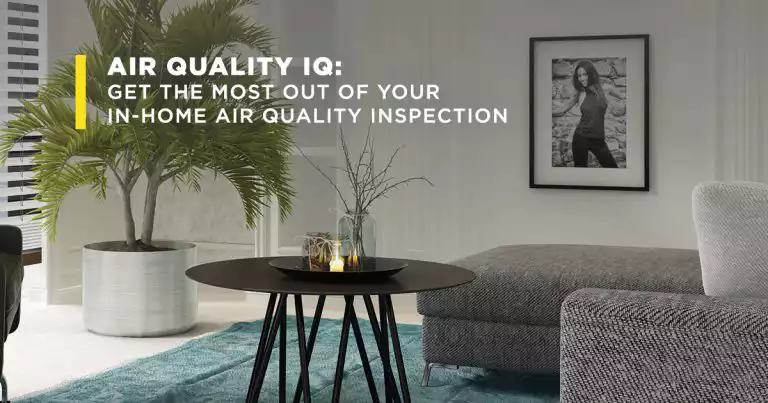Best Questions to Ask At Your Indoor Air Quality Specialist Meeting
2 minute read
If you’ve ever worried about the quality of the air in your home, you know how frustrating it can be to not know what’s causing the issues. That’s when you know it’s time to call an expert. But what questions can you ask to get the best outcome from a professional in-home air quality inspection? One place to start is with a DIY Air Quality Test. These are a simple, practical place to start, and they can give you an idea of where to explore further. If you find anything concerning, contact an Indoor Air Quality specialist to evaluate contaminant levels in your home.
Categories of Indoor Air Quality Specialists:
- Consultants: This includes industrial hygienists, Indoor Air Quality specialists, asbestos and lead inspectors, and radon specialists. Their role is to diagnose and design remediation plans after doing an Indoor Air Quality inspection.
- Professionals: This group carries out the actual remediation services to correct any Indoor Air Quality problems.
Often, companies will offer both services. But don’t feel pressured by a consultant to use their company’s remediation services. If you feel like your needs aren’t being met, you can always get a second opinion.
Questions to Ask Indoor Air Quality Specialists:
Just like when you go to the doctor, you’ll want to ask as many questions as you can when a consultant or professional evaluates and treats the air in your home.
Here are a few to get you started:
- What is causing indoor air pollution in my home?
- How can I reduce the effect of my pet’s hair on my air quality?
- What products should I use to reduce dust build up?
- What products should I stop using?
- Are my recurring headaches possibly related to the quality of air in my home?
- Is it possible my air quality is making my allergies worse?
- Why does my house feel muggy?
- Why is my indoor air too dry?
- Does my HVAC system improve air quality?
- Is the age of my HVAC equipment affecting my air quality?
- I can see and smell mold, but what other air quality issues should I be aware of?
Whether the solution is ventilation, filtration, humidity, or temperature control, it’s always possible to improve the air quality in your home. You just need to know where to start and what questions to ask.
We know the process can be stressful. That’s why our Certified AprilAire Pros are trained to make quick, accurate diagnoses of air quality issues. And once the problems are identified, they can connect you with trusted, industry-leading products to improve your air quality for the long haul.
